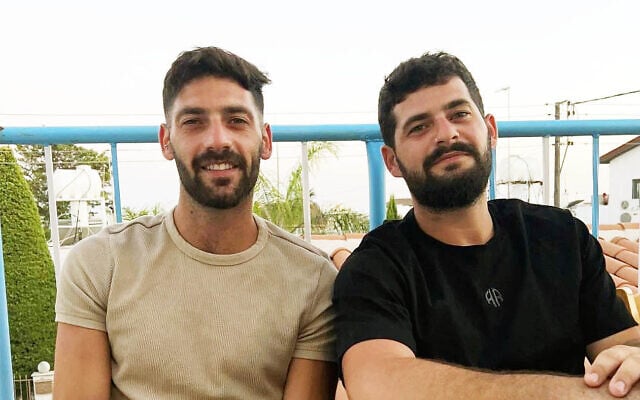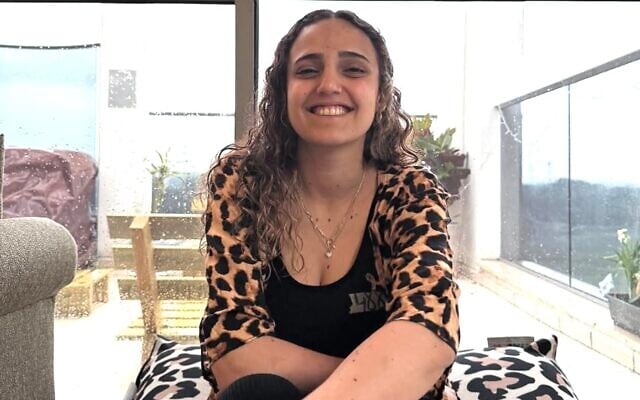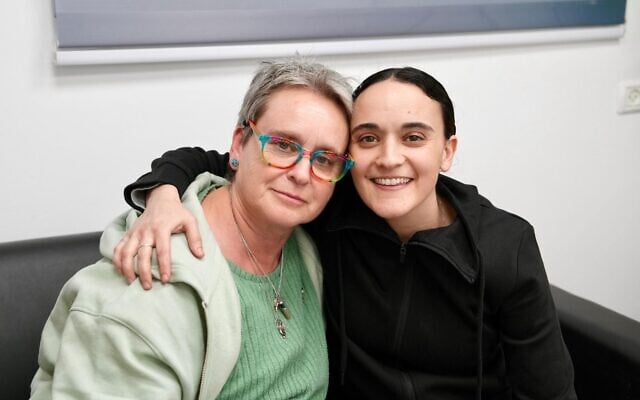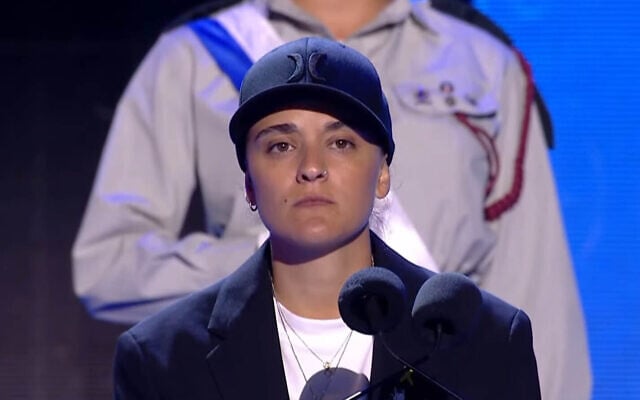



Former hostage Emily Damari said she was once set to kill her Hamas captor with his own gun, in an interview published Friday in which she demanded a deal for the release of the 50 remaining captives, including Damari’s best friends, twin brothers Gali and Ziv Berman.
Speaking tot UK’s The Daily Mail, Damari, 29, also said a home of a Hamas member where she was being held with Ziv Berman was bombed while she was inside.
The British-Israel ex-captive said she had convinced a Hamas terrorist guarding her and other female hostages to hand over his weapons for her “to play with.”
“Then he walked away,” she said. “I said to the girls, ‘Maybe I should kill him? ‘ I started getting really excited about the idea.”
“But then the girls said, ‘Yeah, but then what? Then we’re all going to die’,” said Damari. The plan never came to fruition. Still, she said, if her captors “sat with me now and I could kill them — of course, I would be happy to do it.”
Damari was kidnapped from Kibbutz Kfar Aza during the Hamas onslaught of October 7, 2023. She was abducted alongside Ziv Berman, her neighbor, who rushed over to her home to make sure she was safe. Invading terrorists shot Damari in her left hand, and another bullet was lodged in her right leg after fatally hitting her dog Choocha in the head.
Damari said she preferred to be killed than kidnapped. She recounted taking one of the terrorist’s guns, putting it to her head and telling him: “Shoot me! Shoot me!”
Her captors took her to Gaza City’s Shifa Hospital, telling her she was worth more to her alive than dead, the Daily Mail reported. At the hospital, a doctor who introduced himself as “Dr. Hamas” amputated two damaged fingers on Damari’s left hand, she said.
At the hospital, Damari briefly met fellow hostage Romi Gonen, who had herself been shot in her right arm. Damari was then taken to the home of a Hamas member, where she was held with Ziv Berman alongside the unnamed Hamas member’s wife and six children, including a gun-touting 14-year-old, The Daily Mail said.
Damari and Berman were taken elsewhere after the house was flattened by a bomb, The Daily Mail said. Damari recounted the explosion: “I thought I was in heaven. I saw one big fireball, and then I didn’t see anything any more. Everywhere was dust.”
Damari and Berman were separated after 40 days in captivity. Damari was told she would be going home, but was instead herded into an underground cage, according to The Daily Mail. There, she was reunited with Gonen.
In addition to Gonen and Damari, the cage would ultimately house nine women and girls. Six of the hostages were released in the weeklong November 2023 ceasefire, leaving five.
“We just continued to survive,” said Damari. “We were totally surrounded by terrorists. Five girls. They have weapons. They are stronger than you. They can do whatever they like, whenever they like.”
“Worst than them knowing I was Jewish or Israeli” was them knowing she was gay, said Damari. “I hid that about myself.”
She recalled asking a guard what would happen if he discovered his brother were gay. “He said, ‘Well, I would kill him.’ I said, ‘Okay, but it’s your brother?’ He said, ‘No, he’s sick’,” said Damari.
Even as Damari was held with dozens of other hostages in some 30 locations, her one constant was Gonen, the Daily Mail said. Damari spoke to the newspaper of the “twin-like connection” she developed with Gonen, with the two helping each other eat, dress and wash as they tried to deal with their festering wounds.
At one point, the two were held above ground, and Gonen saw on television a woman holding Damari’s picture in the Knesset. It was Damari’s mother Mandy — whose fate after the Hamas onslaught was unknown to Damari until that moment.
“I didn’t recognize her for a second and then I was like…. ‘Mum’!” Emily said. ‘Then I started to cry. I was shaking. It was the opposite of an anxiety attack. It was this relief, my mother is alive. Everyone was crying.”
Despite her family’s dogged advocacy, Damari said one family in whose home she was held tried to convince her and fellow hostages that they had been forgotten.
‘They were the worst people,’ she said. ‘The worst family. They would make fun of us and laugh at us. They would tell us: ‘Nobody cares about you’.” In addition, said Damari, “They would hide food from us and tell us we were never leaving Gaza.”
Damari and Gonen were both released at the start of the ceasefire-hostage deal between Israel and Hamas in January. The deal saw Hamas release 33 women, children, civilian men over 50 and those deemed “humanitarian cases,” in exchange for some 1,900 Palestinians detained by Israel, including at least 270 serving life terms in connection with murder.
Terror groups in Gaza still hold 50 hostages, 28 of whom are confirmed to be dead, including a soldier killed fighting in the 2014 Gaza war. Another 20, including Gali and Ziv Berman, are known to be alive, and there are grave concerns for the well-being of two other hostages, Israeli officials have said.
Damari was “visibly angry” as she called for a deal to release the hostages, The Daily Mail said.
“Come on already! What is taking so long?” she asked, calling on US President Donald Trump and Prime Minister Benjamin Netanyahu “to do everything in your power to bring my Gali and Zivi home.”
“They are probably in a cage,” said Damari. ‘They are abusing them. There isn’t a lot of water. It is probably unimaginably hot for them.”
“You saved my life, now you must do the same for the last 50 hostages,” she said, addressing Trump and Netanyahu. “Only then can we start to heal.”




